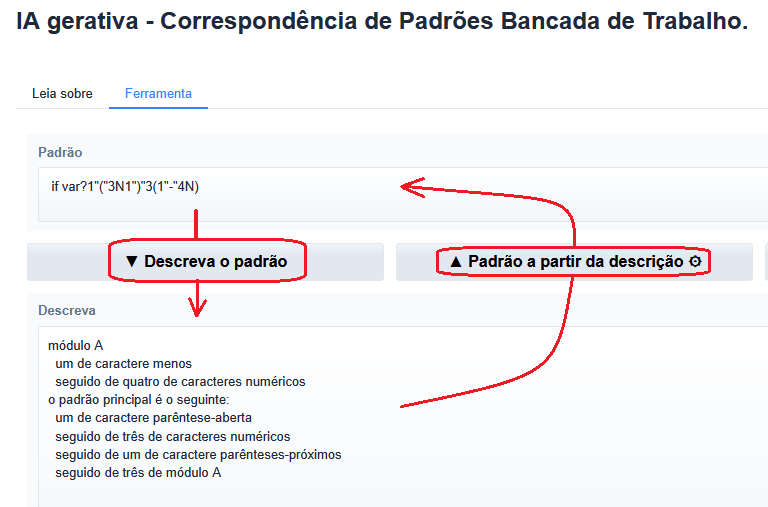Thank you community for translating an earlier article into Portuguese.
Am returning the favor with a new release of Pattern Match Workbench demo app.
Added support for Portuguese.
The labels, buttons, feedback messages and help-text for user interface are updated.
Pattern Descriptions can be requested for the new language.

